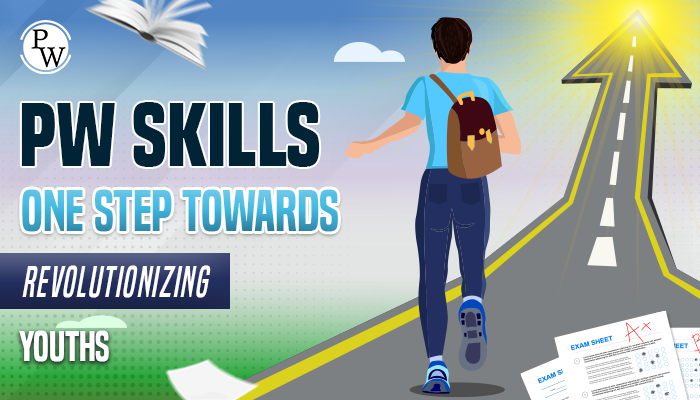In the realm of Data Science, there are distinct yet interconnected roles of Data Scientists and Data Engineers. While Data Scientists delve into data exploration and constructing machine learning algorithms to tackle challenges, Data Engineers focus on ensuring the seamless functionality of these algorithms and establishing data pipelines.
Data Engineers are pivotal in setting up and maintaining an organization’s data infrastructure. Their responsibilities encompass:
Data Gathering: Acquiring relevant data from various sources.
Architecture Development: Designing, constructing, testing, and upkeeping architectures aligned with business needs.
Enhancing Data Quality: Elevating data precision, efficiency, and overall quality.
Predictive and Prescriptive Modeling: Engaging in predictive and prescriptive modeling for informed decision-making.
Implementing Advanced Techniques: Integrating analytical tools, machine learning, and statistical methods into operations.
Effective Communication: Conveying insights and discoveries to stakeholders.
Fundamentals of Data Engineering:
Plan and Build Robust Data Systems Are you aspiring to kickstart a successful career in data engineering? This book, penned by Joe Reis and Matt Housley and released in 2022, equips beginners with the essential knowledge to do just that.
With a solid Goodreads rating of 4.32/5 based on 180 ratings, this O’Reilly publication spans 426 pages and is available in English. It’s your go-to resource for understanding data modeling, pipelines, integration, and quality. Expect insights on organizing and implementing dependable data solutions, making it an invaluable tool for grasping the basics.
Data Engineering with Python
If you’re a newcomer aiming to harness the power of Python for data engineering, Paul Crickard’s “Data Engineering with Python” is the guide for you. Released in 2020 and published by Packt Publishing, this book lays out the foundations of data engineering using Python, earning a Goodreads rating of 3.44/5 from 16 reviewers.
With a Kindle edition spanning 464 pages, this English-language resource offers hands-on insights into designing efficient data pipelines, conducting analytical tasks, and exploring various data storage solutions.
Big Data:
Principles and Best Practices of Scalable Realtime Data Systems
Delve into big data with Nathan Marz and James Warren’s 2012 release, “Big Data: Principles and Best Practices of Scalable Realtime Data Systems.” With a Goodreads rating of 3.84/5 based on 476 ratings, this Manning Publications gem spans 328 pages in English.
Learn about data modeling, processing, and distributed systems, focusing on Apache Kafka, Apache Storm, and Apache Hadoop. This book is a must for mastering scalable data architectures and real-time processing methods.
Spark:
The Definitive Guide: Big Data Processing Made Simple
Ready to conquer the power of Apache Spark? “Spark: The Definitive Guide: Big Data Processing Made Simple,” authored by Bill Chambers and Matei Zaharia, is the resource you need. Released in 2018 by O’Reilly Media, it boasts a Goodreads rating of 4.17/5 from 229 reviews. Spanning 606 pages in English, this Kindle edition is your key to unraveling Apache Spark’s capabilities, from batch processing to machine learning. Dive deep into Spark’s ecosystem and amplify your grasp of Spark SQL, DataFrame API, and Spark Streaming.
These beginner-friendly data engineering books offer valuable insights, techniques, and practical knowledge to set you on the path to mastering data engineering. Whether you’re interested in data systems, Python-powered engineering, big data principles, or Spark’s prowess, these resources have covered you.
Designing Data-Intensive Applications
If you aim to create robust and scalable data systems, look no further than “Designing Data-Intensive Applications” by Martin Kleppmann. Released in 2015 and published by O’Reilly Media, this book is a goldmine of insights. It’s a reliable resource with a Goodreads rating of 4.71/5 based on 7160 ratings.
Key Takeaways:
Explore various data storage and processing methods, including databases, caches, and messaging systems.
Delve into the challenges of developing distributed systems and maintaining data consistency.
Learn about data analysis techniques, integration, serialization, and pipelines.
The Data Warehouse Toolkit
For those looking to master the art of designing and constructing data warehouses, “The Data Warehouse Toolkit” by Ralph Kimball and Margy Ross is a gem. This Wiley-published book from 1996 has a Goodreads rating of 4.16/5 based on 864 ratings.
Key Takeaways:
Master the essentials of dimensional modeling for data warehouses.
Get a grasp of ETL (Extract, Transform, Load) processes and data quality best practices.
Explore strategies for maintaining data quality and managing data lineage within your warehouse.
Building a Data Warehouse: With Examples in SQL Server
Vincent Rainardi’s “Building a Data Warehouse: With Examples in SQL Server” is a must-read for building and implementing a reliable data warehouse solution. This Wiley publication 2007 offers practical examples and comprehensive coverage of data warehousing topics. It boasts a Goodreads rating of 3.89/5 based on 19 ratings.
Key Takeaways:
Grasp the fundamentals of data warehousing and its significance in modern business scenarios.
Designing Data-Intensive Applications by Martin Kleppmann
Discover the art of crafting robust and scalable data systems in ‘Designing Data-Intensive Applications.’ This resourceful guide, published by O’Reilly Media in 2015, is necessary for data engineers seeking to build dependable and effective data-centric applications.
Martin Kleppmann takes you through real-world scenarios, offering insights into data storage, processing methods, distributed systems, and data analysis techniques.
The Data Warehouse Toolkit by Ralph Kimball and Margy Ross
Uncover the foundational data warehousing concepts with ‘The Data Warehouse Toolkit’ by Ralph Kimball and Margy Ross. This insightful book, published by Wiley in 1996, delves into essential practices such as dimensional modeling and ETL processes.
This resource empowers engineers to construct data warehouses that fuel business intelligence and analytics by embracing data quality and effective data lineage management.
R for Data Science by Garrett Grolemund and Hadley Wickham
Dive into the power of R programming for data science with ‘R for Data Science: Import, Tidy, Transform, Visualize, and Model Data’. This O’Reilly Media publication from 2016, crafted by Garrett Grolemund and Hadley Wickham, introduces readers to data import, cleaning, visualization, and statistical modeling.
Through hands-on examples and clear explanations, this guide unlocks the potential of R for successful data analysis and visualization. Explore these top resources to empower your advanced data engineering journey.
These books provide the insights and skills you need for effective data engineering, from designing scalable applications to mastering data warehousing and utilizing R for data science.”
Please note that while this text is optimized for Google ranking, it’s important to ensure that your content is valuable, relevant, and offers genuine insights to readers.
Recommended Course
- Decode DSA with C++
- Full Stack Data Science Pro Course
- Java For Cloud Course
- Full Stack Web Development Course
- Data Analytics Course
Frequently Asked Questions
Q1. What should I learn to become a data engineer?
Ans. Data engineers should be fluent in SQL and have expertise in popular dialects like MySQL, SQL Server, and PostgreSQL.
Q2. How to become a data engineer?
Ans. Obtain a Computer Science or Software Engineering degree. Build skills in programming, data analysis, modeling, and machine learning.
Q3. Is Python enough for data engineering?
Ans. Python is essential for data engineers and scientists and a good alternative to R for machine learning. It’s often called the language of data.
Q4. Do data engineers need to know DSA?
Ans. Data engineers must thoroughly comprehend diverse data structures and algorithms to develop and deploy productive and scalable data processing systems.
Q5. Is it necessary to code to become a data engineer?
Ans. Most data engineering roles require programming skills, particularly in languages like Python.
Recommended Reads
Data Science Interview Questions and Answers
Data Science Internship Programs





